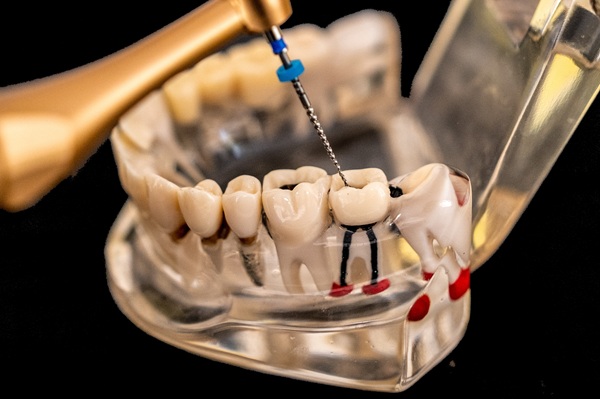Can a Failed Root Canal be Re-Treated?

Having teeth problems can be frustrating, whether you’re dealing with cavities, toothaches or a root canal. What do you do, though, when you have a treatment and the problem isn’t fixed? Can the root canal be re-treated? Knowing more about root canals and what your options are will help you make an informed decision.
Why is a root canal performed?
To understand why a root canal is needed, it is important to understand the root of a tooth. The part of the tooth that is secured in the bone of the jaw is the root. Inside the root is a soft material referred to as pulp, which houses the nerves and blood vessels of the tooth. When a tooth is damaged, there is potential for the pulp material to get inflamed or infected.
To avoid removal of the tooth, a root canal can repair the problem. When performing this procedure, a dentist or endodontist first fixes any exterior damage to the tooth. Next, they go in and remove any damaged pulp material. Then they use a paste and rubber compound to fill the tooth. Last, a filling is installed in the tooth to close it up.
Can a root canal be re-treated?
What kind of issues can damage a root canal?
Root canals occur in dentist offices every day, and they have a very good success rate. There are, however, some issues that can cause new damage to a tooth previously fixed:
- Fresh tooth decay, such as a new cavity, can open up a new pathway to the tooth’s root system. This can allow infection to seep into the tooth again.
- Impact or injury can damage the tooth itself. A cracked or broken tooth can allow infected material to grow inside a tooth’s roots.
- A filling or crown in the tooth could be broken loose. This could occur from grinding teeth or biting into a hard object. If a large enough gap occurs, infection can spread.
The good news is that a root canal can be re-treated. At the first sign of an issue, patients should contact their dentist for a consult.
What does a root canal retreatment involve?
A retreatment is very similar to a regular root canal. A couple of additional steps are completed to deal with the filler material that was used in the initial treatment. A retreatment is generally done in two phases.
In the first phase, the damage is addressed. The tooth is repaired, the filling material is removed and the tooth is cleaned of all infection. Before the patient leaves, an antibacterial paste is applied that helps destroy any infection. The tooth is closed up and the patient is asked to return in a few days.
In the second phase, the paste is removed and the canals are thoroughly cleaned. A new rubber compound is applied as filler in the tooth’s root. A filling is once again installed to close the tooth.
Conclusion
New damage to a tooth you already had repaired can be frustrating. However, it is good to know that your root canal can be re-treated and the problem can be fixed.
Are you considering a root canal in the Nashville area? Get more information at http://www.sheats-endo-nashville.com.
Check out what others are saying about our services on Google: Read our Google reviews.
Recent Posts
If you're wondering, "how can I find an endodontist near me?" read on to learn more. Endodontic pain, often caused by tooth trauma or root canal problems, can be disruptive and significantly affect one’s quality of life. The endodontist does the root canal treatment to ease tooth pain. When searching for “an endodontist near me,”…
Having a chipped tooth is not something that anyone wants to deal with. It can be problematic because of the treatment required. Additionally, having a chipped tooth can be painful and make it challenging to eat and even speak like normal. Fortunately, there are a plethora of resources that people can use in order to…
Breaking a tooth can be a frightening time for anyone, and not knowing whether to seek emergency dental care for the broken tooth or wait for the regular office to open can add to the stress. The good news is that broken teeth are often resilient and can usually be restored to their normal function,…
Tooth pain relief is often necessary when decay, infection, or trauma affects the inner structure of a tooth. In many cases, root canal therapy is the most effective way to eliminate pain, save the natural tooth, and prevent further complications. This procedure removes infected or damaged pulp, cleans the root canals, and seals the tooth…


